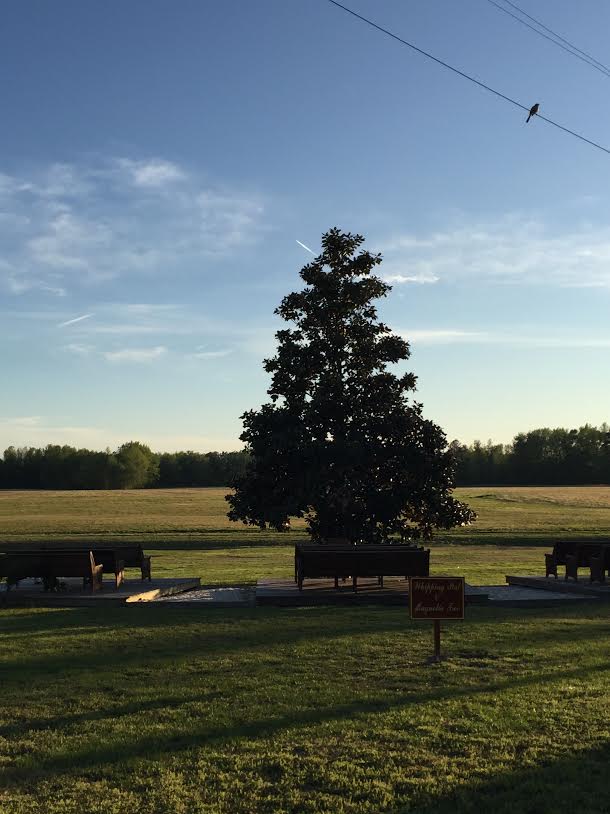
“I want to heal you, heal you. I want to heal you, heal you. I want to heal you, heal you. Deep down in my soul. . .” We gather around the magnolia tree and sing these words. We are Black and White and Brown women from all across the United States. We pause from our work in our home cities to come here to Eastern North Carolina to pray in our different faith traditions and to imagine together what redemption might look like and how women organizing can bring about a vision of justice for our country. We stand on land that was once a plantation, where human beings from Africa were brutalized and dehumanized, torn from their families and stripped of their names. We stand on land that was later purchased by a woman named Julia Bricks, who created one of the first accredited schools in the South where African American children could study. We stand on land that is now a retreat center operated by the United Church of Christ, a space open to all who are working for a better world. We take time to honor the memory of the ancestors who stood and lived and suffered and resisted and died and survived on this very land; whose bodies were tortured at this very magnolia tree. We sing out, “I want to heal you, heal you. . .. Deep down in my soul. . .” We sing out for healing of the land and for healing of souls. We read aloud the names of women enslaved in this place (at least those names that are known), and we read the names of women of color who have been killed this past year by race-based violence. We recite Mourner’s Kaddish. We recite our own names, and the names of our parents and grandparents – feeling the presence of all of the generations beside us, giving us courage to work for the healing of our hearts and our country. “I see you,” we respond to one another. “I see you.”
Last week, I had the blessing of participating in a gathering of “Women’s Theology of Liberation” in Whitakers, North Carolina, representing POWER along with organizers, lay leaders and clergy from PICO (People Improving Communities through Organizing) affiliates throughout the country. It felt particularly fitting to be there in this season of liberation, reflecting on our country’s legacy of slavery and racism, and of memory and movement, as we prepare for Pesach.
We are getting ready to go out of Mitzrayim. Each year, we are called to see ourselves and our world in the story, to imagine ourselves as going out of the narrow places, to remember and to walk beside all those who are longing to be free.
Beyond our rituals of remembrance, our matzah and maror, our songs and seder tables, our prophets insist that we take action. In the Haftarah from this past Shabbat, the prophet Malachi tells us that if we want God to bring about redemption, we have to partner with God in caring for the widow, the orphan and the stranger and in sharing the resources of the earth.
This Pesach, I want to offer a question – one of many big questions that we will raise during this Passover holiday and beyond. This Pesach, how might our memories move us to action? How might the memories and stories we carry lead us to act for liberation in our world?
